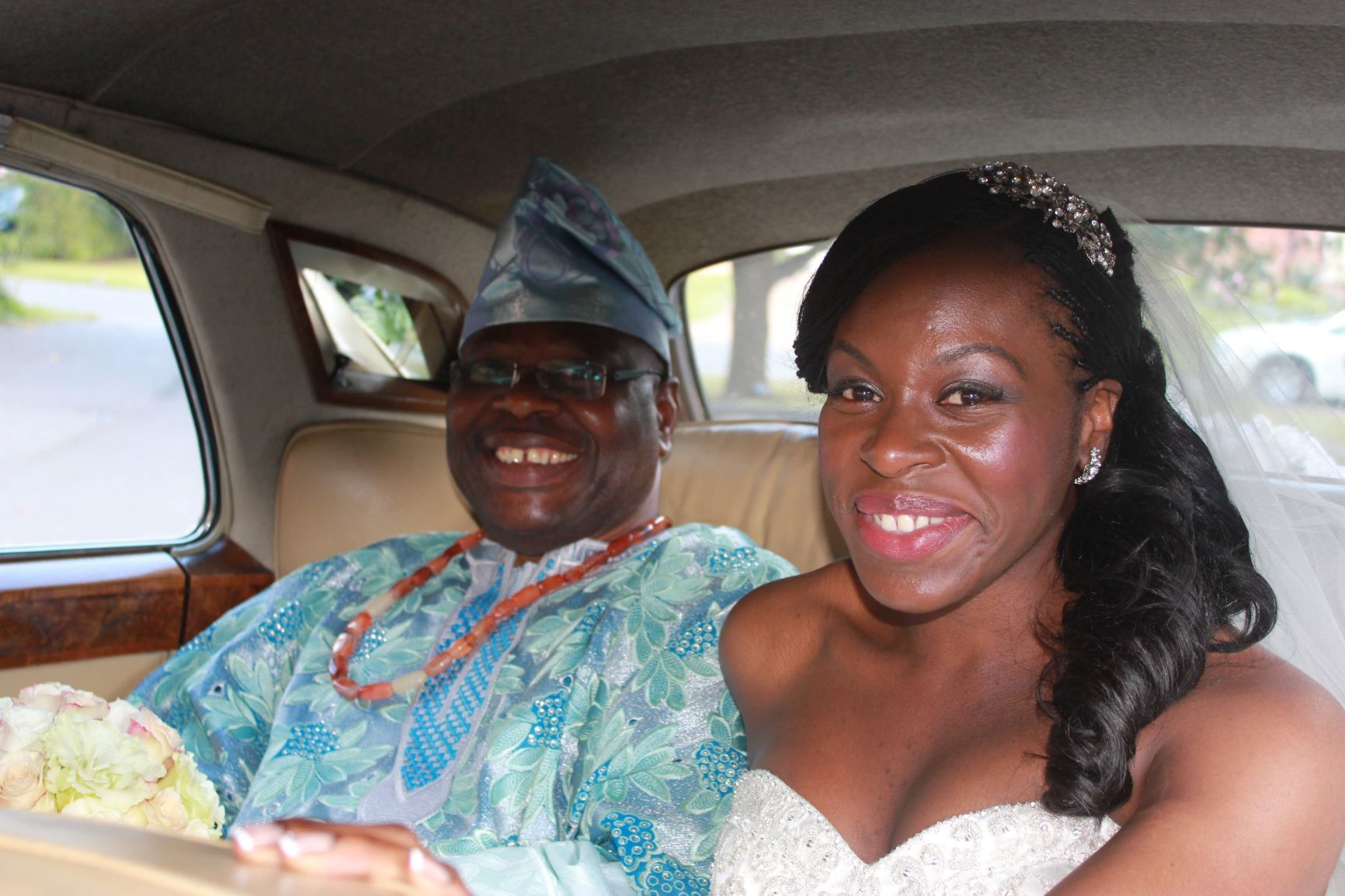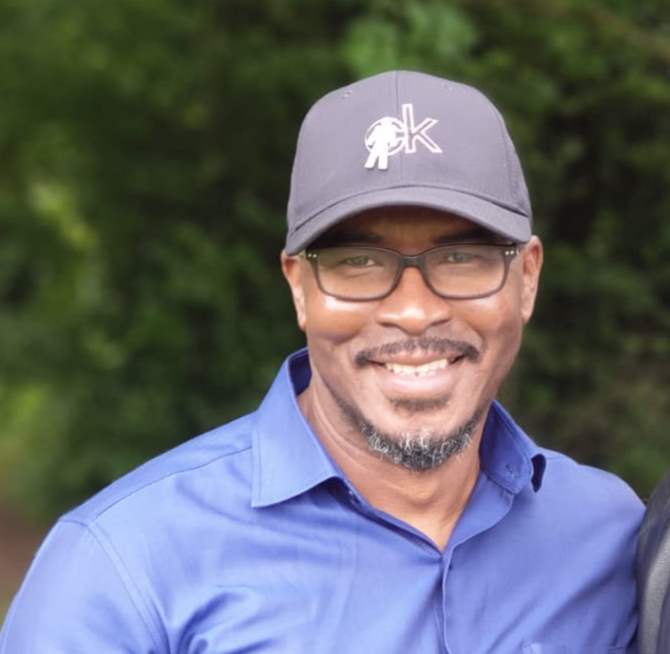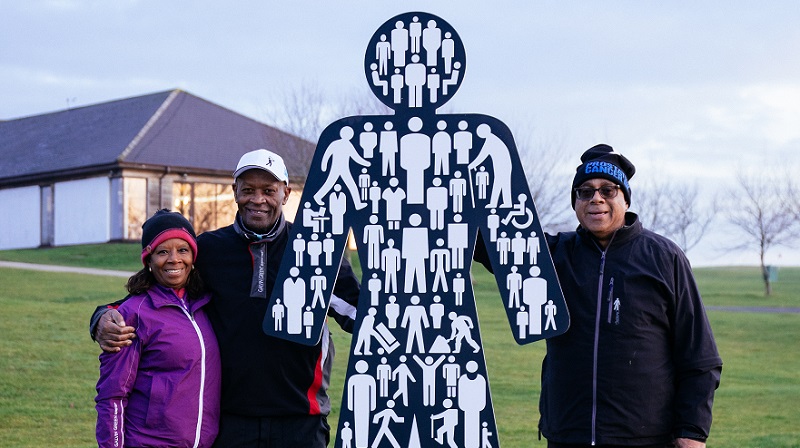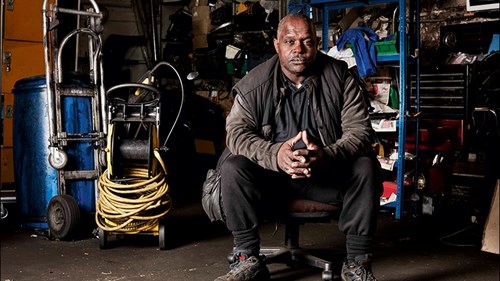Real Stories
08 Oct 20211 in 4 black men will be diagnosed with prostate cancer. Meet the people spreading the word in their communities.
This Black History month we celebrate those doing life-saving work in their community, to encourage conversations and support research to understand why black men are at higher risk.


Ifeoma Nembhardt set up Prostate Cancer: Black Men after losing her dad, to encourage conversation about prostate cancer in the black community.
Ifeoma’s dad, Nnamdi, sadly died from complications of prostate cancer in May last year, at the age of 69. He wasn’t aware that his ethnicity put him at higher risk of the disease, and was diagnosed late, once the cancer had already spread.
“I didn’t know much about prostate cancer before my dad was diagnosed, and had no idea that black men had double the chance of getting it. Unfortunately, in Nigerian tradition, no one really talks about cancer – but that needs to change. I truly believe that if I’d known then what I know now, my dad might still be here. I want to make people in the black community aware of the risks of prostate cancer so they can catch it early, before it turns into something terminal.”
“There’s still so much we don’t know about why black men are twice as likely to get prostate cancer. The only way to find this out is through research, which is why I’d encourage all eligible men to sign up to the PROFILE study – not just for their own benefit but for the whole black community. I hope the study will lead to better tests that can help catch prostate cancer earlier, so other men don’t have to experience what my dad went through, and other families can avoid this pain.”
“People sometimes think it’s odd that a woman started Prostate Cancer: Black Men, but I feel that we, as women, are in a strong position to help and encourage the men in our lives, whether they are our fathers, brothers, partners, sons or friends, we can provide that push that’s often needed to encourage a trip to the doctor to get tested which could ultimately save their lives.”
Find out more about the PROFILE study >

Jeff is one of our one-to-one peer support volunteers.
Jeff runs a predominately black men’s support group in Croydon and came to Prostate Cancer UK with a great deal of experience and knowledge supporting other men in his community.
“I’m honoured to be able to share my experience of living with prostate cancer with others through the one-to-one service. Being a volunteer helps me too, each time I speak to a service user I feel I’m making a difference to someone else’s journey.”
“As a black man, another dimension to this volunteering role is that the black men I’ve spoken to so far have felt more comfortable speaking to me as, culturally we really understand each other. One service user, who hadn’t specifically requested to speak to another black man said “You’re a brother!” He then totally relaxed, and we were able to use different and more relatable terminology.”
“My experience within my own support group and community is that men feel white people are not interested in black people, advertising on TV is aimed at white guys, but with 1 in 4 black guys likely to get prostate cancer we should be better represented. The promotion of black men available to support other black men and their families on this service is a big step forward for Prostate Cancer UK.”
Find out more about our one-to-one support service >

Tyrone and Jacqui are using golf to spread the message about prostate cancer with the African Caribbean Golf Association.
As members of the African Caribbean Golf Association (ACGA), the couple’s passion for golf has taken them around the world from Portugal to Barbados. Jackie was Captain of the ACGA in 2013 and made sure the committee supported Prostate Cancer UK.
Last year, they joined fellow supporter and ACGA golfer Frank Skinner to star in a Sky Sports documentary.
“During the night I’d get up two or three times to go to the loo. Jacqui had heard some talks from Prostate Cancer UK and wouldn’t let it drop, she kept saying ‘you need to go to the doctors’. I think it took me about two years to get me to go.”
Jacqui’s hunch turned out to be correct, as Tyrone was diagnosed with prostate cancer in 2015.
“Prostate cancer can be devastating, but having a strong partner, like my Jacqui, made it easier for me. Going through treatment has made us stronger. It showed that we’re a partnership, a team. Our partnership has been cemented. If you’re in a relationship, when it comes to cancer you can’t be on your own. The ACGA will carry on supporting Prostate Cancer UK as long as it’s going.”
Sign up to volunteer with us >

Errol McKellar MBE is the man behind a decade of life-saving conversations.
The ex-mechanic from London has encouraged thousands of men to understand their prostate cancer risk in his garage, and when coaching football. We’ve known how outstanding Errol is for years but recently the Queen found out and decided to give him an honour for his relentless work. Errol was diagnosed with prostate cancer in 2010 and has been on a mission to let other men know about their risk since.
"The MBE came as a complete shock. My wife got the email and immediately phoned me and told me to check my inbox. I’m terrible on computers and couldn’t get it up on my phone, so I left it until I got home. I was absolutely over the moon when I saw it. I felt pride, but it's not just about me, this honour is for all of us at Prostate Cancer UK. It’s on behalf of we, not me.”
“Over the last 10 years we’ve probably helped to save over 1000 lives. And long may it continue. One of the things that I am really proud of is my ‘Man of Men’ pin badge. Everywhere I go that comes with me and it's so great to see people wearing the badge everywhere."
"It's very important for all men to know the risk with prostate cancer. But especially Afro Caribbean men because they’re at higher risk. If you’re black and over 45, have a conversation with a doctor, especially if you have a family history of prostate cancer. Take the 30-second risk checker right now."
Give a regular gift to help find the answers that save lives, through ground-breaking projects like PROFILE.



